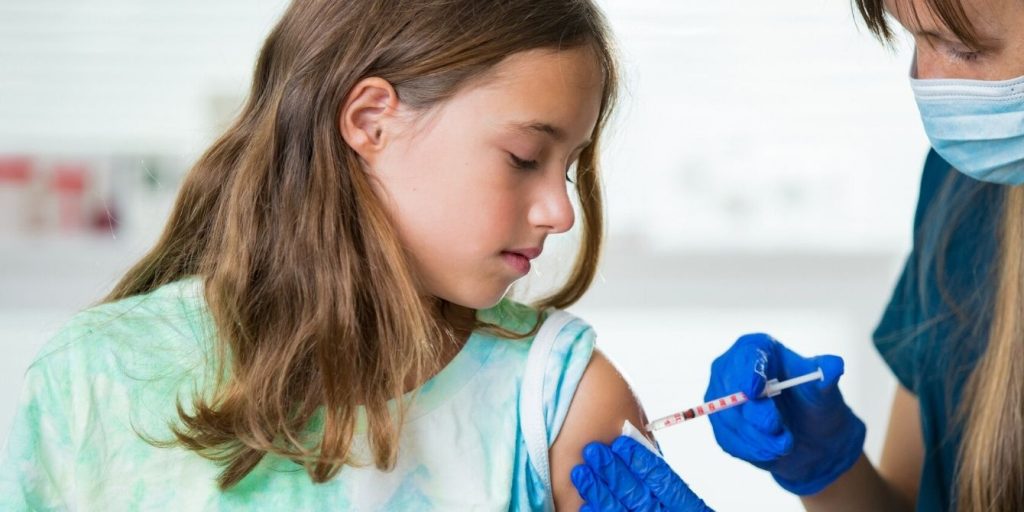HPV Vaccine Rates Stall In Teens

Even though vaccination is often the best (and safest) way to prevent or minimize a plethora of serious illnesses, vaccine reluctance has been on the rise in recent years, fueled largely by the spread of misinformation on social media and from politicians fanning the flames. According to new data released by the Centers for Disease Control and Prevention (CDC), intake rates for the HPV vaccine have stalled in teens for the second year in a row, with health experts concerned about a potential increase in cancer rates as a result.
The data, published in the agency’s Morbidity and Mortality Weekly Report, shows that intake rates for the HPV vaccine among children ages 13 to 17 have stagnated for the second year in a row. The percentage of teens in the Vaccines for Children (VFC) program who were up-to-date on their HPV vaccine by age 13 was 10.3 percentage points lower among teens born in 2010 (42.7%) compared with those born in 2007 (53%), which researchers designated as the last birth year unaffected by pandemic-related healthcare disruptions.
Thankfully, it seems that routine vaccinations for other diseases, such as tetanus and meningitis, have returned to pre-pandemic levels, but the reluctance among parents to vaccinate for human papillomavirus (HPV) could create worrisome health implications.
In 2023, experts began recommending that children as young as 9 receive the HPV vaccine, citing an increase in protection from six types of cancer, since preteens’ more robust immune systems mean they produce more antibodies after vaccination than older teens, as family physician Beth Oller, MD, FAAFP previously told Motherly.
“Each year in this country, more than 36,000 people, men and women, have a cancer caused by HPV, including penile, vaginal, vulvar, anal and head and neck cancers. Over 7,000 die per year, and this is exactly why it is so important to get this vaccine for our children,” Dr. Oller explained. “We don’t have any other vaccine that prevents cancer.”
“As a physician, I want to do anything I can to improve vaccination rates, especially with this important vaccine, as HPV is the most common sexually transmitted infection in the U.S. for both men and women,” she added.
With a proven and safe way to reduce serious illness from such a common infection, why are parents reluctant to vaccinate their children against HPV?
“The reason I hear parents say no is because they feel like ‘my child doesn’t need that yet.’ It’s the idea that if your child isn’t yet having sex, then they don’t need the vaccine,” Dr. Oller said, pointing out that early vaccination provides the best chance at building up immunity against the virus, especially if it’s well before a child is sexually active.
“We know that these vaccines work, and work well. HPV infections and cervical precancers have dropped since 2006, when HPV vaccines were first introduced in the U.S. Among teen girls, infections with HPV types that cause most HPV cancers and genital warts have dropped 88%. Among young adult women, these infections have dropped 81%,” she added.
Gardasil, the only HPV vaccine currently approved in the U.S., is recommended for people between the ages of 9 and 26, and was approved for adults 27 through 45 in 2018. Adverse events are rare, with a reported 1.8 per 100,000 HPV vaccine doses, or 0.0018%, between 2015 and 2018.
As with any healthcare concerns, talking to your doctor—and not buying into potentially misleading or harmful information found on social media—is the best plan of action to protect your child against disease.





